How Fast Does A Bullet Travel - Know The Facts About Bullet Speed.
Factors That Affect The Speed Of A Bullet - Average Bullet Speeds For Different Types Of Calibers.
Do you know how fast does a bullet travel? Wondering, how fast does your favorite bullet travels.
You probably already know that different calibers travel at different speeds.
A rifle bullet's speed is the fastest in between (1200 - 4000 feet per second). Shotgun calibers come with the approximate speed of (1200 - 1600 feet per second) & the slowest calibers are handguns with a speed(of 950 - 1500 feet per second).
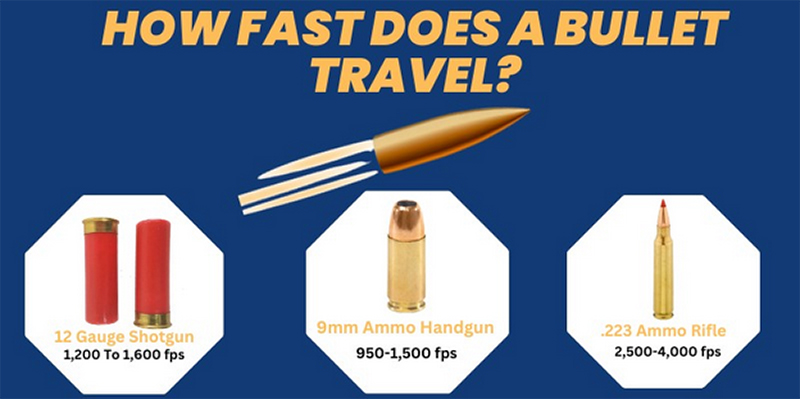
Understanding bullet speed is crucial in firearms; you can better protect yourself and your loved ones.
This blog post will give detailed information about bullet speed, exploring its physics, common speeds, record-breaking velocities, and real-world effects.
This will help you choose the right caliber as per your requirement.
Understanding Bullet Speed
Understanding bullet speed is really very essential to get good shooting results.
Lets know about the basics of bullet speed.
Definition of bullet speed and its measurement units.
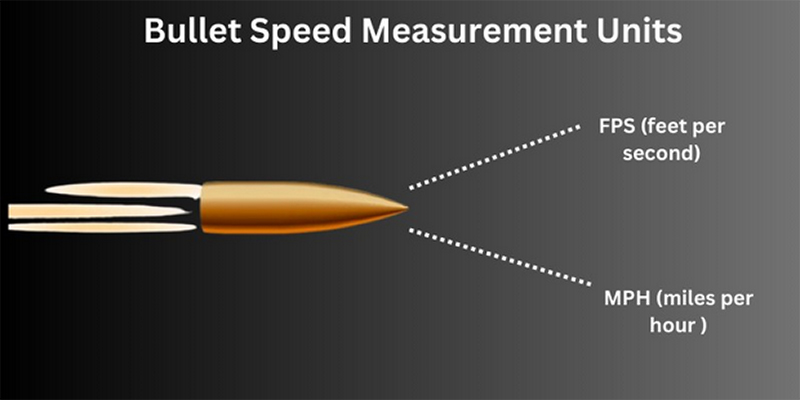
Bullet speed is a bullet's velocity as it leaves a firearm's muzzle. A bullet caliber determines its speed.
FPS (feet per second) and MPH (miles per hour) are the most common American measurements for bullets.
Several factors, including the type of firearm, the cartridge, and the barrel length, determine the bullet's muzzle velocity.
In general, higher muzzle velocity means the bullet will travel farther and hit with more energy.
However, other factors can also affect a bullet's performance, such as its weight and shape.
Main Factors That Impact Bullet Speed
Different types of bullets have different speeds. A bullet speed is impacted by various factors like; type of firearm, type of cartridge, length of the barrel & many more.
Let's discuss them in detail.
The type of firearm
The muzzle velocity of a bullet will vary depending on the type of firearm. For instance, the muzzle velocity of a rifle will normally be higher than that of a handgun. This is because rifles have longer barrels, which gives the bullet more time to accelerate.
The cartridge being used
The cartridge that is used will also have an impact on a bullet's muzzle velocity. For instance, a heavier bullet in a cartridge will normally have a lower muzzle velocity than a lighter bullet in the same cartridge. This is because it takes more energy to speed up a heavier projectile.
The length of the barrel
Barrel length also impacts a round performance. The muzzle velocity of a bullet will also be impacted by the barrel's length. The bullet will often have more time to speed up with a longer barrel, increasing the muzzle velocity.
Increasing velocity is one of the most important things you can do for bullet performance, so make sure you have a longer barrel that is adequate for the round you’re shooting.
The Bullet's Weight
Bullet weight is one of the most important factors in measuring bullet speed. The bullet's weight will also have an impact on muzzle velocity.
A heavier bullet will have a lower muzzle velocity because it needs more energy to gain speed. Lighter bullets will be fastest when fired from the same caliber.
The Bullet's Shape
The shape is also a factor that will affect bullet muzzle velocity. A more streamlined bullet will have a lower drag coefficient, which will allow it to travel faster.
The air resistance
The muzzle velocity of a bullet will also be impacted by air resistance. As the bullet travels through the air, it will encounter air resistance, which will slow it down. The density of the air, which is influenced by elements like temperature and humidity, will determine how much air resistance there is.
The wind speed
The muzzle velocity of a bullet will also be impacted by the wind speed. The bullet will move more quickly and have a higher muzzle velocity if the wind is blowing in the same direction as the bullet. The bullet will slow down and have a lower muzzle velocity if the wind is blowing in the other direction.
It is important to note that all of these factors can interact with each other, and the exact muzzle velocity of a bullet will depend on the specific combination of factors involved.
Important Factors To Measure Bullet Performance.
There are a number of factors that can be used to measure bullet performance. Some of the most important factors include:
Muzzle velocity
The muzzle velocity of a bullet is the speed at which it leaves the muzzle of the firearm. This is a significant factor since it affects the bullet's trajectory and energy level when it impacts the target.
Trajectory
The route a bullet takes as it travels through the air is known as its trajectory. This is significant since it establishes the height, distance, and amount of drop the bullet will experience over a specific distance.
Energy
The energy of a bullet is the amount of force that it can deliver when it hits the target. This is important because it determines how much damage the bullet can cause.
Penetration
The penetration of a bullet is the depth that it can travel into a target. This is important because it determines how effective the bullet will be at stopping an attacker or killing game.
Expansion
The expansion of a bullet is the way that it changes shape when it hits a target. This is important because it can increase the bullet's energy and penetration.
Accuracy
The accuracy of a bullet is the ability to hit a target consistently. This is important for both hunting and self-defense.
Recoil
The recoil of a firearm is the force that is transferred to the shooter's shoulder when the gun is fired. This is important because it can affect the shooter's ability to control the gun and make accurate shots.
Depending on the particular application, each of these criteria will have a different level of importance.
For big game hunting, muzzle velocity and energy are more crucial, whereas precision is more crucial for self-defense.
It is also essential to keep in mind that a variety of other factors, like the kind of firearm, the cartridge, the barrel length, and the weather, may impact the way a bullet performs.
When selecting a bullet for a certain purpose, several aspects should be taken into mind.
Comparison of bullet speeds for handguns, rifles, and shotgun Calibers
Popular Rifle Calibers Bullet’s Speed
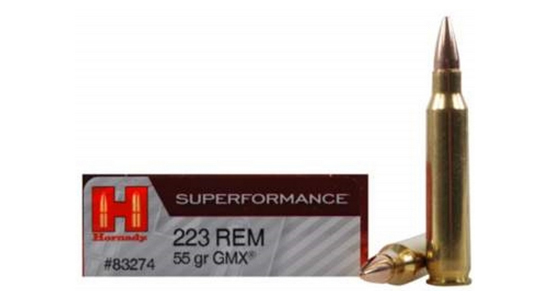
223 Ammo (Bullet- 55 gr. GMX)
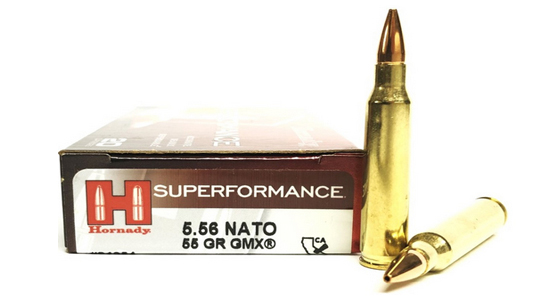
5.56 Ammo (Bullet- 55 gr. GMX® (20” Bbl)
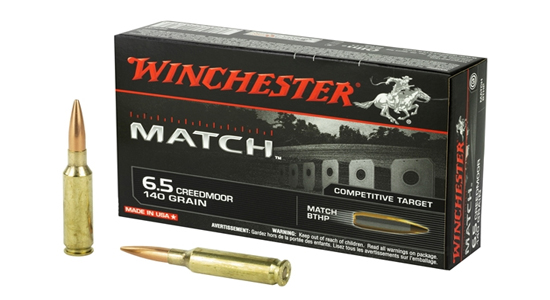
6.5 Creedmoor (Bullet 140 gr. BTHP)
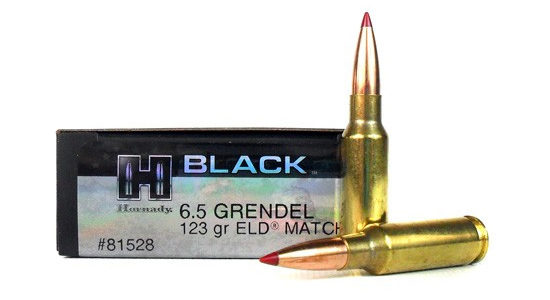
6.5 Grendel (Bullet 123 gr. ELD® Match)
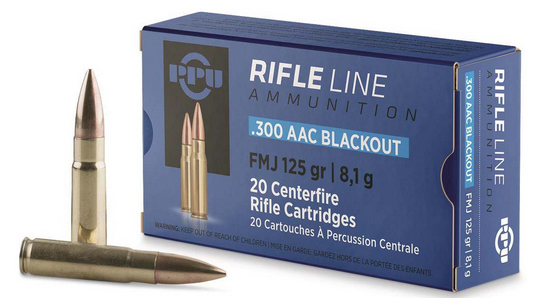
300 Blackout Ammo (Bullet 125 gr. HP (16” Bbl)
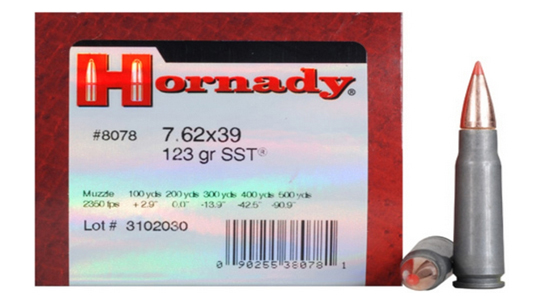
762x39mm Ammo (Bullet 123 gr. SST®
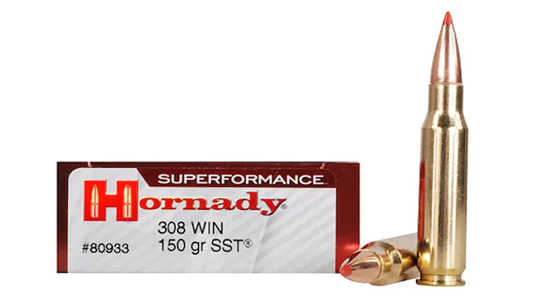
308 Winchester Ammo (50 gr. SST®)
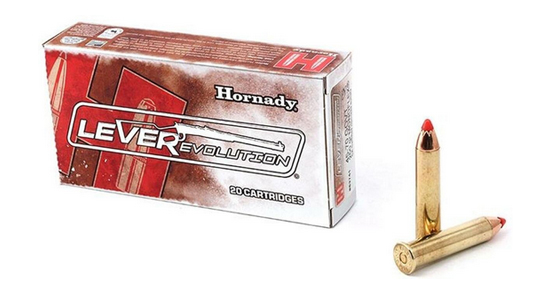
45-70 Ammo (Bullet 250 gr. MonoFlex)
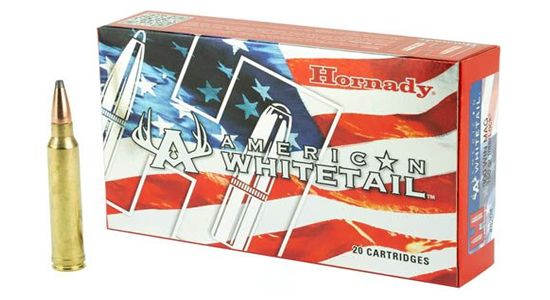
300 Win Mag Ammo (150 gr. InterLock® SP)
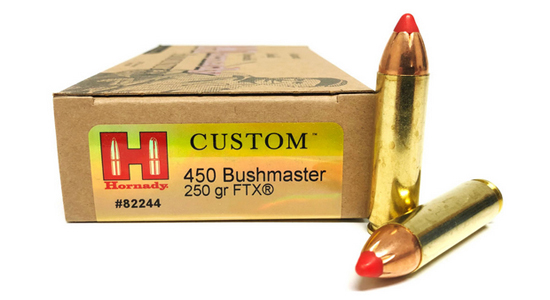
450 Bushmaster Ammo ( 250 gr. FTX® (20” Bbl)
Popular Pistol Calibers Bullet’s Speed
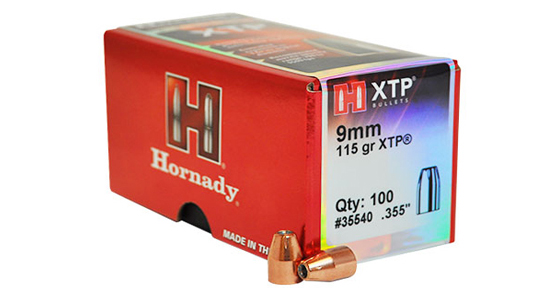
9mm Ammo (Bullet 115 gr. XTP)
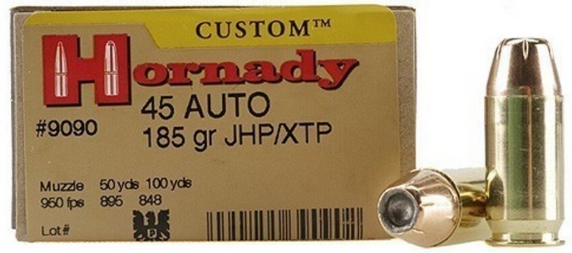
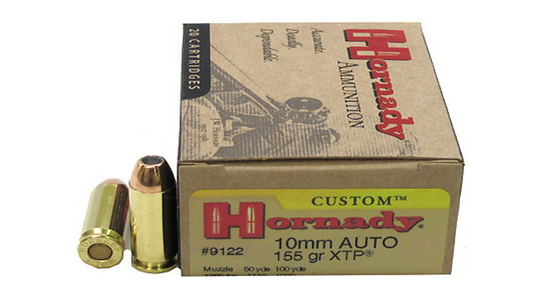
10mm Ammo (Bullet: 155 gr. XTP)
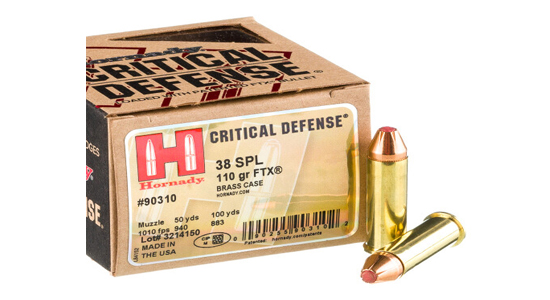
38 Special Ammo (Bullet: 110 gr. FTX)
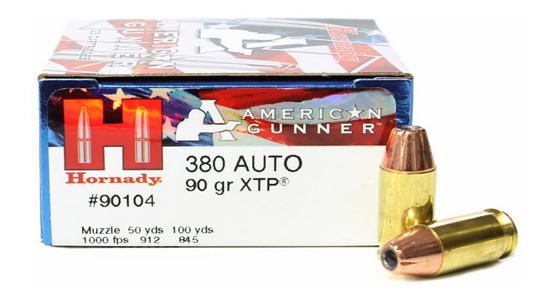
.380 Auto Ammo ( Bullet: 90 gr. XTP)
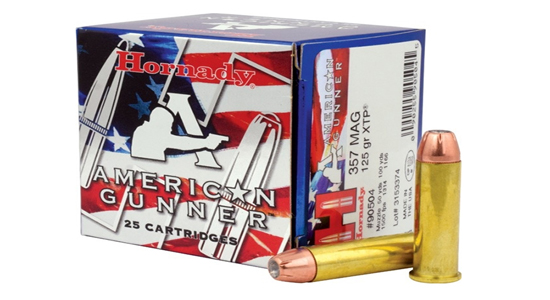
357 Magnum Ammo (Bullet: 125 gr. FTX)
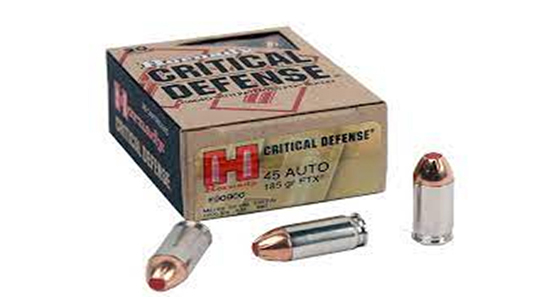
45 Colt Ammo (Bullet:185 gr. FTX)
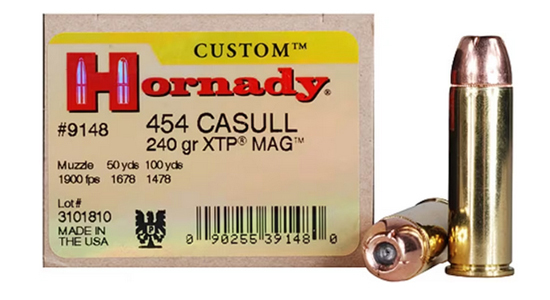
454 Casull Ammo (Bullet: 240 gr. XTP® Mag)
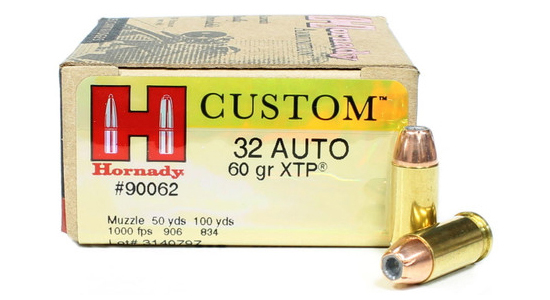
32 Auto Ammo (Bullet:60 gr. XTP)
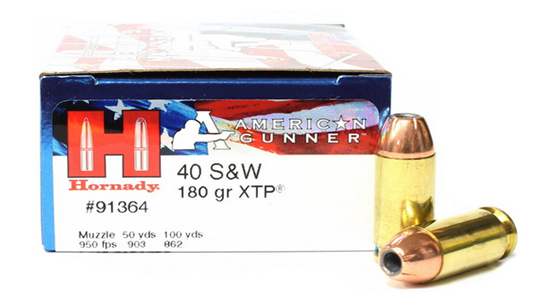
40 S&W Ammo (Bullet:180 gr. XTP)
Popular Shotgun Calibers Bullet’s Speed
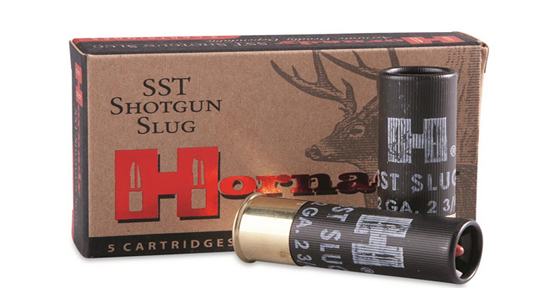
12 Gauge Ammo (Bullet: 300 gr. FTX)
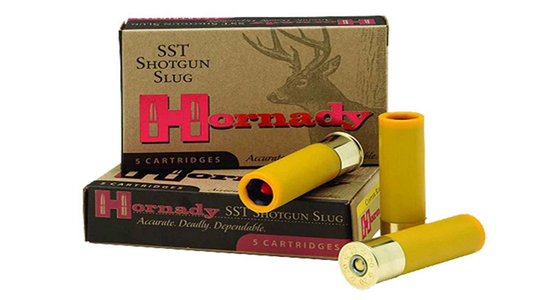
20 Gauge Ammo (Bullet: 250 gr. FTX)
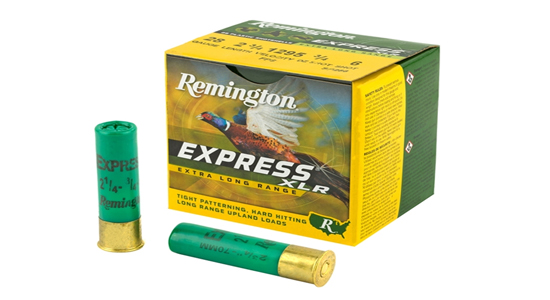
28 Gauge Ammo
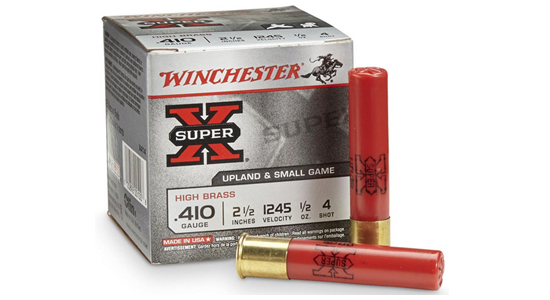
410 Bore Ammo
These are muzzle velocity for popular handguns, rifles, and shotgun calibers.
Pros And Cons Of A Fast Bullet Speed?
Here are some of the pros and cons of a fast bullet speed:
Pros
 Increased range: A faster bullet will travel farther than a slower bullet. This is because it has more energy, which allows it to overcome air resistance and gravity for a longer period of time.
Increased range: A faster bullet will travel farther than a slower bullet. This is because it has more energy, which allows it to overcome air resistance and gravity for a longer period of time. Increased energy: When a bullet reaches its target, a faster bullet will have more energy than a slower bullet. It might also cause more harm, making it more useful for hunting or self-defense.
Increased energy: When a bullet reaches its target, a faster bullet will have more energy than a slower bullet. It might also cause more harm, making it more useful for hunting or self-defense. Reduced wind drift: A faster bullet is less affected by wind than a slower bullet. This is because it has less time to be affected by the wind as it travels through the air.
Reduced wind drift: A faster bullet is less affected by wind than a slower bullet. This is because it has less time to be affected by the wind as it travels through the air. Reduced bullet drop: A faster bullet will drop less over a given distance than a slower bullet. This is because it has more energy, which allows it to travel farther before it starts to drop due to gravity.
Reduced bullet drop: A faster bullet will drop less over a given distance than a slower bullet. This is because it has more energy, which allows it to travel farther before it starts to drop due to gravity.
Cons
 Increased recoil: A faster bullet will produce more recoil than a slower bullet. This is because it has more energy, which is transferred to the shooter's shoulder when the gun is fired.
Increased recoil: A faster bullet will produce more recoil than a slower bullet. This is because it has more energy, which is transferred to the shooter's shoulder when the gun is fired. Increased noise: A faster bullet will produce more noise than a slower bullet. This is because it is moving faster, which creates more sonic booms as it travels through the air.
Increased noise: A faster bullet will produce more noise than a slower bullet. This is because it is moving faster, which creates more sonic booms as it travels through the air. Increased difficulty of accuracy: Shooting accurately with a faster bullet is more challenging than with a slower one. This is due to the fact that it moves more quickly and has less opportunity to settle in the air before hitting the target.
Increased difficulty of accuracy: Shooting accurately with a faster bullet is more challenging than with a slower one. This is due to the fact that it moves more quickly and has less opportunity to settle in the air before hitting the target. Increased ammunition cost: Fast-velocity bullets are typically more expensive than slower-velocity bullets. This is because they require more gunpowder to propel them to their higher speeds.
Increased ammunition cost: Fast-velocity bullets are typically more expensive than slower-velocity bullets. This is because they require more gunpowder to propel them to their higher speeds.
Ultimately, the decision of using a faster bullet will depend on the specific application.
A fast bullet speed will be necessary for hunting large games. It will not be so essential for self defense.
FAQs
Q:What is the average speed of a bullet?
Ans: The average speed of a bullet can vary depending on factors such as the type of firearm and ammunition used. Generally, a rifle bullet speed is the fastest in between (1200 - 4000 feet per second). Shotgun calibers come with the approximate speed of (1200 - 1600 feet per second) & the slowest calibers are handguns with a speed(of 950 - 1500 feet per second)
Q: How fast does a 9mm bullet travel?
Ans: On average, standard 9mm ammo fired from a handgun can have muzzle velocity from approximately 1,000 to 1,200 feet per second (feet per second). However, depending on the ammo being used, the bullet speed will change. As subsonic rounds will move more slowly than supersonic rounds.
Q: how fast does a 22 bullet travel?
Ans: The muzzle velocity of a .22 caliber varies between specific ammunition. In General, a 22 bullet travels between 1,100 to 1,300 feet per second.
Q: How fast does a bullet travel in mph?
Ans: An average bullet travels 1700 mph. It will be different for different bullet types.
Q: Feet per second to mph?
Ans: 1 mph = 1.46667 feet per second. So, to calculate the speed of a bullet in mph, you can multiply its velocity in feet per second by 1.46667.
Q: How fast does a 223 bullet travel?
Ans: An average muzzle velocity of a .223 bullet is approximately 3,200 feet per second. Again, the exact velocity will vary depending on the type of ammunition being used.
Q: How fast does a 50 caliber bullet travel?
Ans: A 50 caliber bullet travels at a muzzle velocity of 3,000 feet per second (2,050 mph). Despite being heavy, its caliber allows for a massive cartridge with many propellants.
Q: How fast do bullets travel in water?
Ans: Bullets travel slower in water as compared to air. As the depth of the water, The muzzle velocity will be different for specific caliber.
Q: How fast do bullets travel in space?
Ans: Bullets shot in space wouldn't really travel any faster than they would on Earth. The bullet would continue to travel at the speed it had at the moment it left the barrel of the firearm.
Q: Muzzle velocity of 5.56?
Ans: The muzzle velocity of a 5.56mm NATO round is typically around 3,130 feet per second (feet per second). However, this can vary depending on the specific cartridge and barrel length.
Conclusion
In conclusion, the caliber and type of gun being used can have a big impact on how fast does a bullet travel?.
Comparing handguns to rifles and shotguns, the bullet speed of a handgun is often lower.
Muzzle velocities for common handgun calibers including 9mm, .40 S&W, and.45 ACP typically range from 900 to 1,200 feet per second (feet per second).
Faster bullet speeds are possible with rifles, which are renowned for their higher velocities and longer effective range. Muzzle velocities for cartridges like the.223 Remington and.308 Winchester typically range from 2,500 to 3,000 feet per second.
High-velocity rifle cartridges like the.300 Winchester Magnum and the.338 Lapua Magnum may reach speeds of more than 3,000 feet per second and occasionally nearly 4,000 feet per second.
Depending on the kind of ammunition, shotguns can fire a single massive bullet (slug) or many smaller projectiles (shot).
Birdshot for small game normally travels at 1,000 to 1,400 feet per second, whereas slug rounds made for larger animals or self-defense can travel at 1,200 to 1,600 feet per second.
It's essential to keep in mind that these values are estimates and may vary depending on the specific firearm, barrel length, and ammunition.

